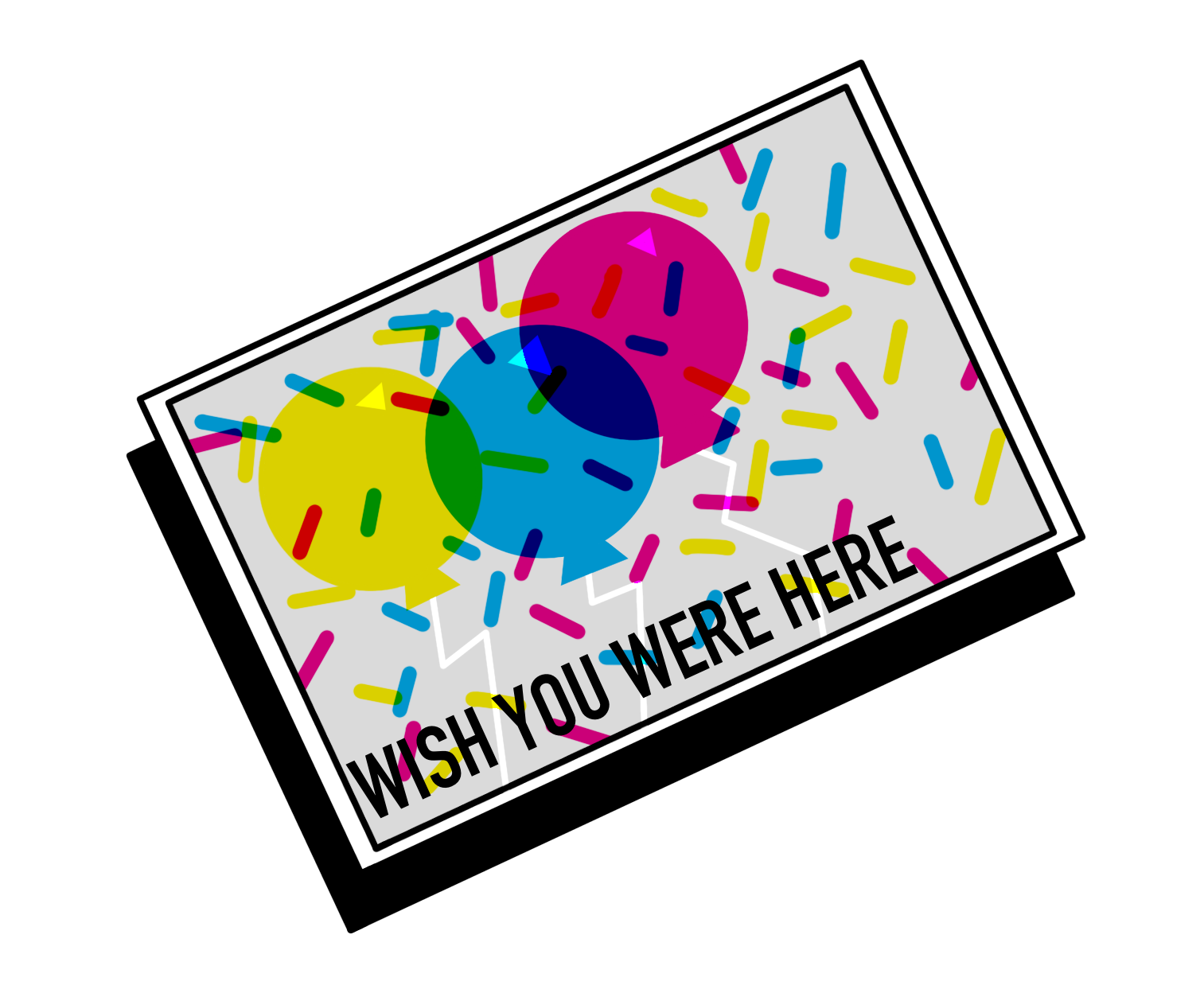Rainbow’s end
March 1, 2024
 Henry Abbott
Henry AbbottNot every 18-year-old can say they’ve been a guardian for a child, much less for three different children. But this past summer, on August 10th, I had one single day where I was.
I went to Camp Aloha Hive, a sleepaway camp in Fairlee, Vt., as a child. My first year, I celebrated my eighth birthday away from home. Every year, my parents would hope my birthday would fall after camp, and I’d celebrate at home. But every year, it’d be during the camp session, and secretly, I was thrilled. At home, I got to be with my parents and siblings and dogs and presents, yes; but at camp, I was with my friends and had a massive birthday cake (shaped like a beehive, of course).
It was exciting to be away from home. I’d return, knowing I’d grown—I had numerical proof—and my parents said they noticed a difference. “You’re very mature now,” they’d say, as if the frigid, unbearable, 10 a.m. forced swim lessons had changed me. Or maybe it came from sleeping and cooking in the woods, or building a fire by myself or learning how to French braid my hair during free time. None of my friends back home could do that.
Eventually, I stopped going; gone were the carefree days of bliss. But whenever I’d see a summer rainbow, fireflies in the park or mist rise off the Erie Canal, I couldn’t help but think wistfully of Vermont.
In 10th grade, friends of mine talked of becoming Counselors-In-Training (CITs). I had stopped daydreaming of Hive, but those conversations brought me back. I contacted the director, but after a few weeks, she delivered a bit of bad news: CITs didn’t get paid. I couldn’t be a full counselor until I turned 18. Even when I did turn 18, because it was at the end of the summer, I’d still be a CIT that year. That added up to four years before I could be a paid employee at the camp.
I found other ways in my hometown to work with kids. For years, I taught swim lessons and helped with dance classes, making connections with the tiny humans that accompanied my afternoons. And when I did get the job, I didn’t process that kids at camp wouldn’t just be sprinkled into my Monday afternoons. They’d be there, all day, with me at their beck and call.
Rapidly, this became my reality. My three campers arrived on June 23, all initially quiet and nervous ten-year-olds. Within days, Chloe would ask me shamelessly to brush her long, curly hair (I’m convinced she didn’t use conditioner), Emily would ask me where she left her name tag last (she needed an AirTag for that thing) and Anna would ask me which of the thirteen activities she should do because she couldn’t choose; they all sounded so cool (she always chose Tennis). At first, everything was a supermassive blur, smeared paint on a canvas I wasn’t sure I wanted—until we went to Rainbow’s End.
Every Thursday evening, the entire camp meanders up the tallest hill at the camp and convenes silently in a clearing in the woods. There are benches, special songbooks and a quaint campfire. It’s a space for campers and counselors alike to practice mindfulness and reflect. The guitarist and cellist have played the same rotation of songs since at least 2012; I saw the light through the pine trees and the familiar sound of “Each Campfire Lights Anew,” and tears sprung to my eyes.
All at once, I felt my childhood right there with me. I saw myself in each of my campers, as they experienced all the joys that I had. When I sang to them, “the joy we’ve had in knowing you,” I knew so certainly it would “last our whole lives through.”
It’s a different experience—caring for someone—once you realize how deeply the things you do for them impacts them. On one of our last nights, we had a thunderstorm that scared just about everyone. Lightning flashed red, drizzle escalated to downpour and the storm showed no signs of letting up. With just a few millimeters of leather and a wooden tent frame separating the four of us from the elements, I remember breathing deeply and shaking out my worries (with limited success). Then Emily spoke up: “Are we gonna die?” she said, tears in her eyes.
“No,” I said. “We are so safe here.” I didn’t know. But I gave her a safety snuggle anyway. I went over to Chloe. She looked at me, then threw herself into a hug. “You’re safe here, Chlo,” I reminded her. She pulled away, wiping her eyes, and we nodded in agreement. Anna was quiet, much quieter than usual. “It’ll be okay,” I told her. I gave her hand a squeeze, and she gave one right back. Everything will be okay.
And it was. The next morning, we all woke up tear-free to sunshine, and what could have been the scariest night of the summer was forgotten. A few days later, their parents came to pick them up. “Write lots of letters,” I told them, knowing they’d forget. We said our goodbyes, misty-eyed again.
A few days later, I blew out 19 candles. My wish? That my campers could have celebrated with me.
Piper Wilson is a member of the Class of 2026.

Comments
Before submitting a comment, please review our comment policy. Some key points from the policy: